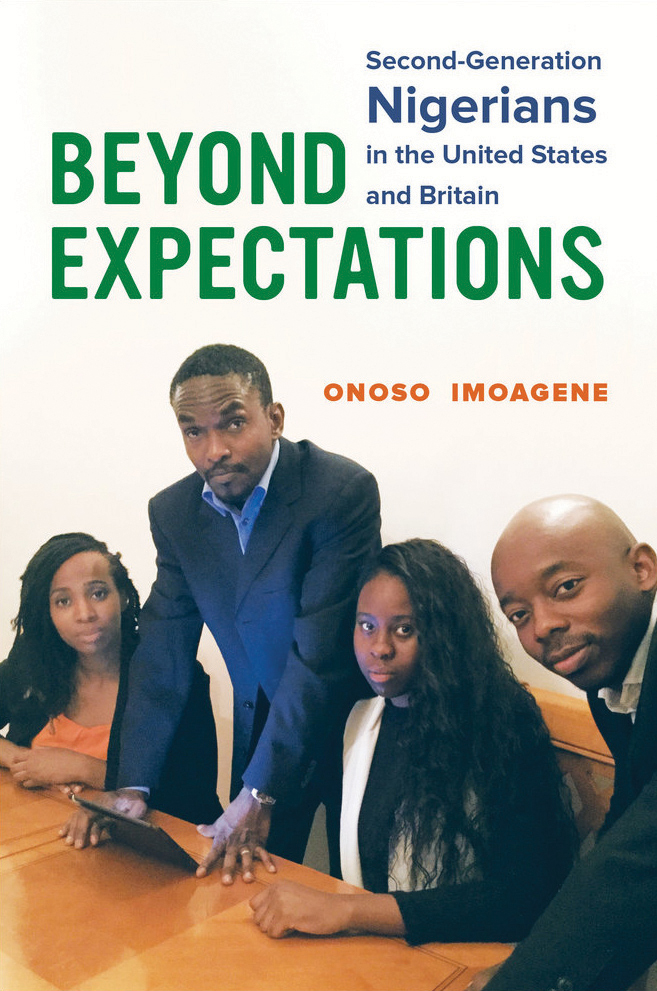Often, immigrating to a foreign country means taking on a new identity, a complex process of adjustment and acculturation. When race comprises a part of a national identity, the process becomes even more complicated.
In her new book, Beyond Expectations: Second-Generation Nigerians in the United States and Britain, published in February, Onoso Imoagene, an assistant professor of sociology, explores ideas of race and national identity through a study of second-generation Nigerians in the U.S. and Great Britain. Her book explores the juncture between race, ethnicity, and social class, as well as the roles of globalization and transnationalism in immigration and creating a sense of self.
“I was quite surprised to find that the national identity of second-generation Nigerians is quite different in the United States and Britain,” Imoagene says. “Nigerians in America really believe in the ‘American Dream’ and feel that they are part of a great tradition of a nation of immigrants. In Great Britain, the opposite is true. There are far fewer second-generation Nigerians reporting that they feel ‘British’.”
Imoagene found that her research concept presented two primary challenges: conceptual and logistical.
“When I was first conceiving of this research project as a doctoral student at Harvard, several professors suggested that there was little research on Africans because Caribbeans were a good enough proxy,” she explains, “I had to really explain to them how these two groups are not necessarily alike because both are Black immigrants.”
Indeed, finding second-generation Nigerians as subjects did prove to be difficult, but Imoagene knew where to look. She contacted the Nigerian embassy in London and, with staff permission, sat in the waiting room with her screening questionnaire. She carried out a similar process at the Nigerian embassy in New York, in order to find a pool of subjects she sought: people who had been born to Nigerian parents or those who had come to the U.K. and the U.S. before age 12.
She also reached out to Nigerian organizations, particularly organizations for children, as well as churches in both Britain and the U.S. She followed up screening questionnaires with interviews.
Among her questions: “What does being British mean to you?” and “Do you think of yourself as an American?”
“On the U.K. side, 20 percent of the people I interviewed would laugh when I asked them what being British meant to them personally. Typical answers were ‘Being British means nothing’ and ‘It means having a red passport’ [enabling them to travel in and out of the country]” Imoagene explains. “If I thought I was going to hear something about dying for Queen and country, I was wrong.”
In the U.S., however, her subjects “identified as American and waxed poetic about it,” she says. “They were very comfortable with a hyphenated identity of ‘Nigerian-American.’”
In both countries, the second-generation Nigerians were, as a group, thriving economically as lawyers, accountants, IT experts, and in other professions.
Imoagene believes that one of the reasons for the difference lies in history of Great Britain and Nigeria, a former colony.
“British colonial history is an impediment to this group forming a British national identity,” she says. “It’s a wound.”
Imoagene hopes that her book will lead to a greater understanding of the issues surrounding second-generation Nigerians—and also an understanding that not all Black immigrants are interchangeable.
“Immigrants from differing African countries and from the Caribbean may all be ‘read’ as Black by whites native to those countries, but they’re not a uniform group, and each one needs to be studied closely to be understood.”




